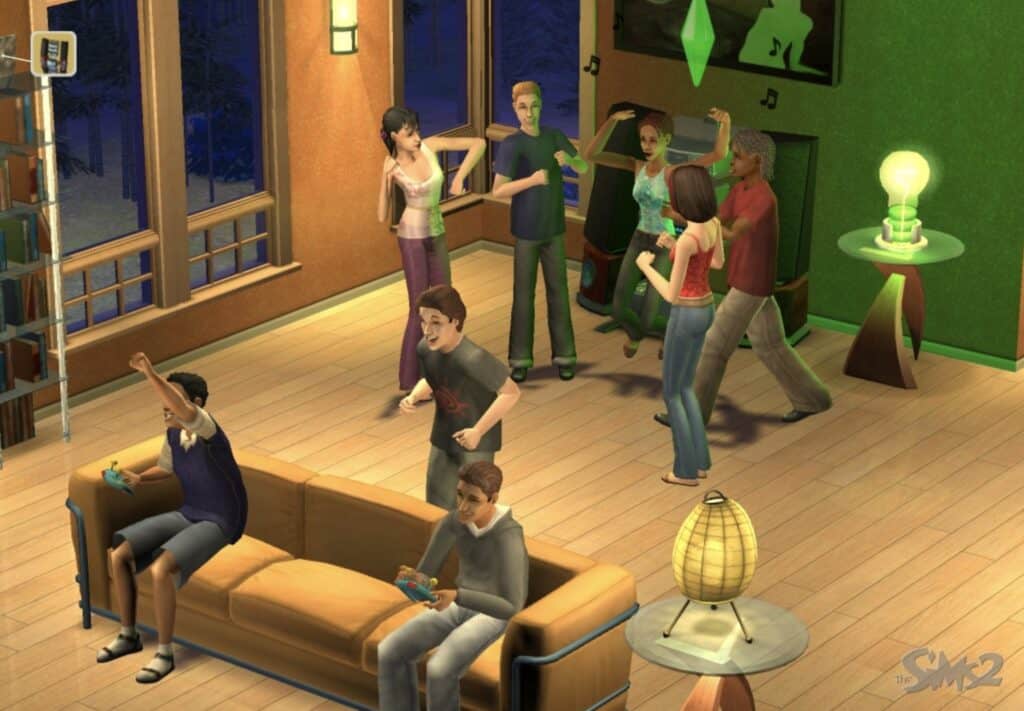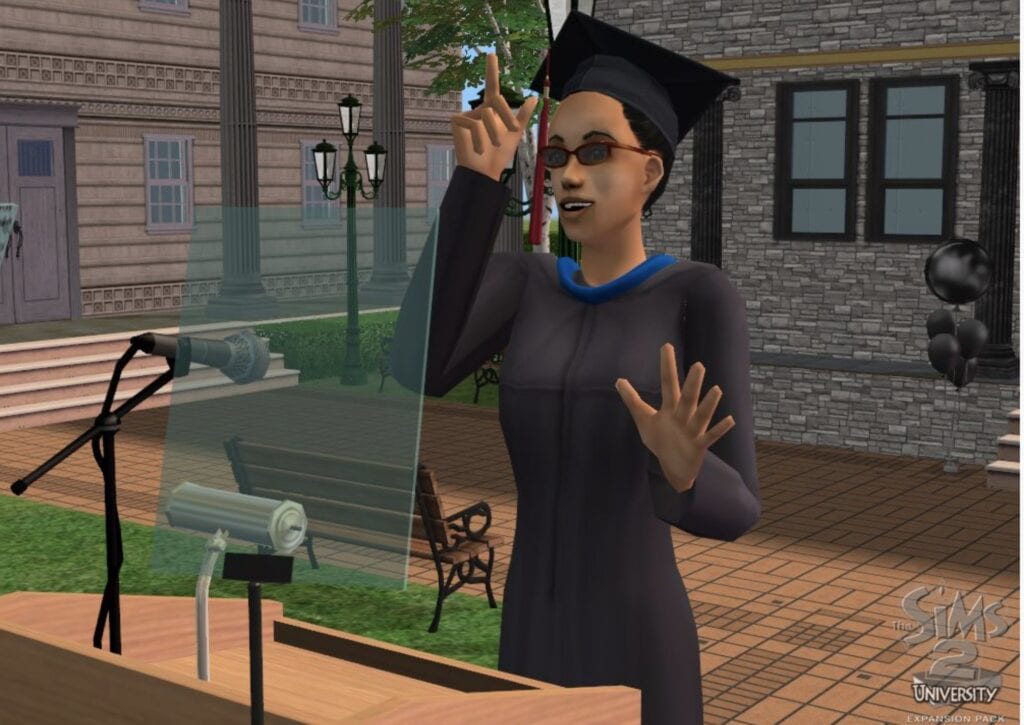Among the – far too many – monuments to nostalgia, there are many golden calves. The junkyard of early 2000’s PC culture is stacked high with false gaming idols that never managed to maintain a players attention. 2004’s The Sims 2 – developed by Maxis and released by Electronic Arts – stands tall as the real deal PC icon. it quickly became one of the all-time best-selling games – 6 million on PC alone. It’s a relic from an era when immersing ourselves in the virtual realm of our Sims was the ultimate escape. The Sims 2 is a gateway to a more innocent time filled with ingenuity and a touch of chaos (those Sims were magnets for mischief). There’s just something profoundly grounding about reacquainting ourselves with the familiar, pixelated environments of The Sims 2.
The Sims 2 was a major step forward for the franchise. The move from a simple isometric view to full 3D visuals added some much needed depth (get it) to the gameplay. The Sims themselves were more intricate with unique characteristics. Plus, they now have the capacity to mature and transmit their genetics to their progeny. These pioneering strides enabled the game to withstand the ravages of time, and many of the features that were avant-garde then continue to be enjoyed by players today. The game was a trailblazer of its epoch, and its heritage perpetuates its influence on the series and the genre in its entirety.
Playing God in the Suburbs

In The Sims 2, players aren’t just participants; they’re puppet masters. Every facet of our Sims’ existences, from their clothing selections to their professional paths, is subject to the will of the player. It’s exhilarating, especially when the real world feels like being trapped in a house-fire without access to doors (a situation familiar to those who have spent too much time in The Sims). Dictating the destinies of our Sims, making choices that will either propel them to greatness or precipitate their downfall, bestows upon us a sense of authority that is, quite simply, intoxicating. This game was a trailblazer, pioneering features such as aging and genetics that injected a fresh dose of realism and command into the gameplay.
And let’s not forget about the creative dimension, this is a canvas for the imagination. Players can craft residences, construct entire communities, and spin elaborate sagas for our Sims. It’s entertaining, cathartic, and a means of self-expression. It’s a way to explore the various aspects of our own identities and experiences. In many ways, The Sims 2 is a blank slate on which we can etch our own narratives, aspirations, and, occasionally, our darkest fears. The game also spawned a host of expansion packs and “stuff” packs. Each one a new weapon in our arsenal of creativity.
Every Life is Different

Despite the passage of years, there remains a vast frontier to explore, a multitude of paths to tread, and an array of outcomes to unravel. The game doesn’t shackle us to a preordained narrative. Instead, it bestows upon us the liberty to script our own tales. It doesn’t matter how ordinary or otherworldly they may be. Yearning to construct a clan of witches residing in a spectral mansion? Forge ahead. Tempted to portray a budding artist battling to carve out a niche in the metropolis? Absolutely. The only constraints are the ones we impose upon our own imaginations.
And let’s not overlook the remarkable legion that has rallied around The Sims 2. This devoted group has kept the game pulsating with life and vitality. They generate custom content, mods, and broadcast their own narratives and creations to the world. This sense of fellowship and mutual fervor adds another stratum of depth to the game . It transforms a game into a dynamic, evolving organism that continues to adapt and resonate.
It’s in Our Blood

For a multitude of players, The Sims 2 functions as a chronological relic. It’s a tether to a vanished chapter of our existence. It evokes a profoundly soothing nostalgia. The recognizable melody of the game’s music, the idiosyncratic movements of the Sims, and the endeavor of maintaining their well-being, all serve as mementos from a time when gaming was finding itself. This nostalgia wields formidable strength and compels us to consistently revisit the game. It’s a world that feels more lived-in than the later entries in the franchise.
As we mature, so does our approach to The Sims 2. Our passions and priorities undergo a transformation. This metamorphosis is mirrored in the narratives we craft and the choices we enact in the game. In this manner, The Sims 2 functions as a reflective surface, echoing our individual odysseys back to us. The insights gleaned from the game can even illuminate the path through real-world problems. Sure, it’s just a game, but it holds the potential to be so much more.
The image featured at the top of this post is ©In-game screen shot..
